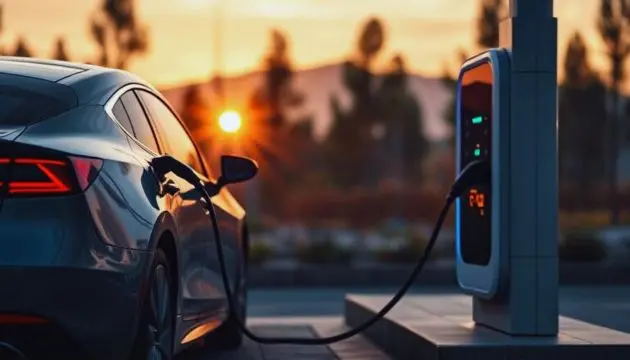ISLAMABAD: All fuel stations and key locations in Islamabad are set to install electric vehicle (EV) charging points by 2030 as part of the government’s plan to transform the capital into a city powered by green energy.
According to reports, the decision was taken during the fifth meeting of the Steering Committee on the Electric Vehicle Policy. The meeting was chaired by Special Assistant to the Prime Minister (SAPM) on Industries and Production Haroon Akhtar Khan and attended by officials from key ministries, the Federal Board of Revenue (FBR), the State Bank of Pakistan (SBP), and the Capital Development Authority (CDA).
The committee reviewed progress on the New Energy Vehicle (NEV) Policy 2025–30 and noted that Islamabad must lead efforts to cut vehicle pollution and promote clean energy transport.
As part of the government’s broader plan, Pakistan aims to have 2.2 million electric motorcycles and cars on the roads over the next five years. To support this, over 3,000 EV charging stations will be set up across the country by the end of this year.
Authorities have already started checking vehicles that exceed emission limits. With charging stations becoming more common, officials expect a rise in the use of electric motorcycles, especially in Islamabad.
— ALSO READ —
Pakistan’s major cities at risk of flooding due to monsoon rains
The committee also discussed the first phase of a subsidy scheme to make EVs more affordable. A technical briefing was presented on EV battery performance, focusing on how Pakistan’s weather affects electric vehicle usage.
SAPM Haroon Akhtar said the Ministry of Industries and Production is working closely with provincial governments to ensure that the EV policy is effectively implemented nationwide. He added that environmental impact will be measured using international standards, and Pakistan may also explore carbon credit opportunities.
The new EV policy is part of the government’s efforts to shift towards a cleaner and more sustainable transport system. The main goal is to reduce dependence on imported fuel and cut environmental pollution.
He said the government is committed to building a green transport infrastructure and aims to achieve progress in technology, economic growth, and environmental protection through the new policy.












